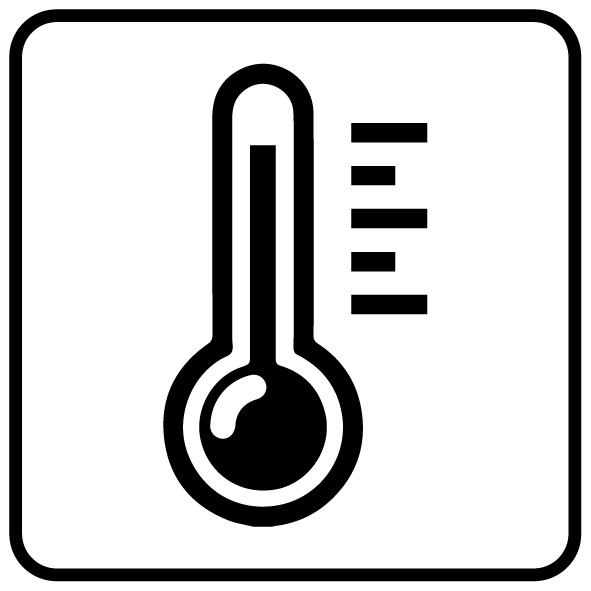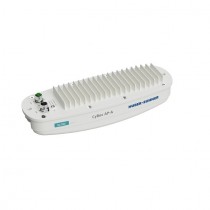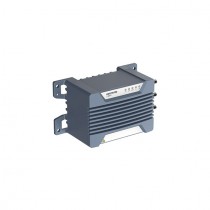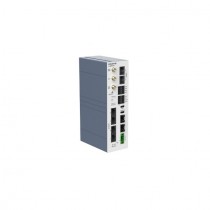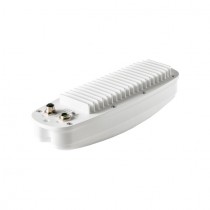Westermo Ibex-RT-320-HV Client/Bridge/Access Point
- 3x3 MIMO
- 2.4 GHz and 5 GHz
- Flexible and easy set-up
- Special ICL mode for stable and secure inter-consist link
- Extended operating temperature range with guaranteed performance across the range
- High-level isolation enables direct mains connectivity
- EN 50155 approved for usage onboard trains and locomotives
- High power and high sensitivity for extended range and reliable wireless coverage
- Fast hand-off for continuous coverage application
- Robust DFS (radar detection) features
- Disturbance-free operation close to other radio devices
Description
The Westermo RT-320-HV is a Wireless LAN Node for on-board and stationary applications. It ensures reliable, high-speed data for applications such as video transmission, useful for instance in train-to-ground and inter-consist communication. The RT-320-HV, along with the application-specific ICL antenna, is designed to withstand the tough environment on-board trains, exposing the device to constant vibration, extreme temperatures, humidity, and a demanding electromagnetic environment.
The radio module is calibrated to ensure fast hand-off, high RF sensitivity (even at high data rates/modulations), stable RF links, optimized DFS handling, etc. A GORE-TEX® membrane prevents internal condensation. High-level isolation between all interfaces enables direct connectivity to vehicle auxiliary power and protects against overvoltage and spikes/surges. IP66 protection prevents ingress of water and dust even at the quick connect QMA connectors.
An overall optimized design results in a compact form factor in combination with very high MTBF for easy integration and low lifecycle cost. Thorough type testing at independent labs certifies compliance to a wide range of standards, not least EN 50155, FCC, and EN 300 440 (the latter opens the possibility to use the 5.8 GHz band in the EU region). Meeting the requirements of the railcar market, the RT-320-HV is very well suited for deployment in any other application with severe operating conditions and tough environments, for instance in the mining or shipping industry.
Inquire about the Westermo Ibex-RT-320-HV Client/Bridge/Access Point, designed for
industrial automation solutions. Feel free to get in touch with our sales team
to give you the best solutions at the best global price in the Middle East (UAE
(Dubai), KSA (Al Khobar, Riyadh), and Oman).
Specification
| Interfaces | |
|---|---|
| 10/100/1000BaseT(X) Ports | 2 x 10/100/1000Base-T, 2 x M12 X-coded connectors |
| Modulation Type | Space Time Block Coding (STBC), RX Low Density Parity Check (LDPC), Maximum Likelihood Demodulation (MLD), Maximum Ratio Combining (MRC) |
| PoE Ports | - |
| Wireless Security | WPA2 (CCMP), WPA3-Personal (SAE/OWE), WPA3-Enterprise (Suite-B), 802.11w, 802.1X, 802.11r |
| Security | HTTP/HTTPS with user authentication, CLI (SSH and Telnet) |
| WLAN Operation Mode | Access Point, Client, Bridge, Inter-carriage Link |
| WLAN Standards | IEEE 802.11b, 802.11g, 802.11a and 802.11n |
| Transmission Rates | 802.11b: 1 Mbit/s, 2, 5.5 & 11 Mbit/s, 802.11g & 802.11a: 6 Mbit/s, 9, 12, 18, 24, 36, 48 & 54 Mbit/s, 802.11n 20 MHz BW, Long GI/Short GI: from MCS0 6.5/7.2 Mbit/s to MCS23 195/216.7 Mbit/s, 802.11n 40 MHz BW, Long GI/Short GI: from MCS0 13.5/15 Mbit/s to MCS23 405/450 Mbit/s |
| Digital Inputs | |
| Console Port | - |
| Power Requirement | |
| Input Current | 0.2 A max |
| Input Voltage | 72-110 VDC |
| Power Consumption | - |
| Reverse Polarity Protection | - |
| Physical Characteristics | |
| Humidity | - |
| Dimensions Packaged | 52 x 110 x 193 mm |
| IP Rating | IP66 |
| EMC | - |
| EMI | - |
| Weight (PACKAGED) | 1,2 kg |
| EMS | - |
| Housing | Metal |
| Installation | onboard trains and locomotives |
| Standards and Certifications | CE, FCC 47 CFR Part 15, EN 301 893, EN 300 328, EN 300 440, EN 301 489-1/-17, EN 60950, EN 50121-3-2, EN 50121-4, EN 50155, EN 45545-2, NFPA 130 |
| Operating Temperature | 40 to +70 °C |
| Safety | EN 60950 |
| Storage Temperature | - |
| General | |
| Management | SNMP, HTTP/HTTPS with user authentication, CLI (SSH and Telnet) |
| LED Indicators | PWR |
| MTBF | 341,000 hours (IEC 62380) |

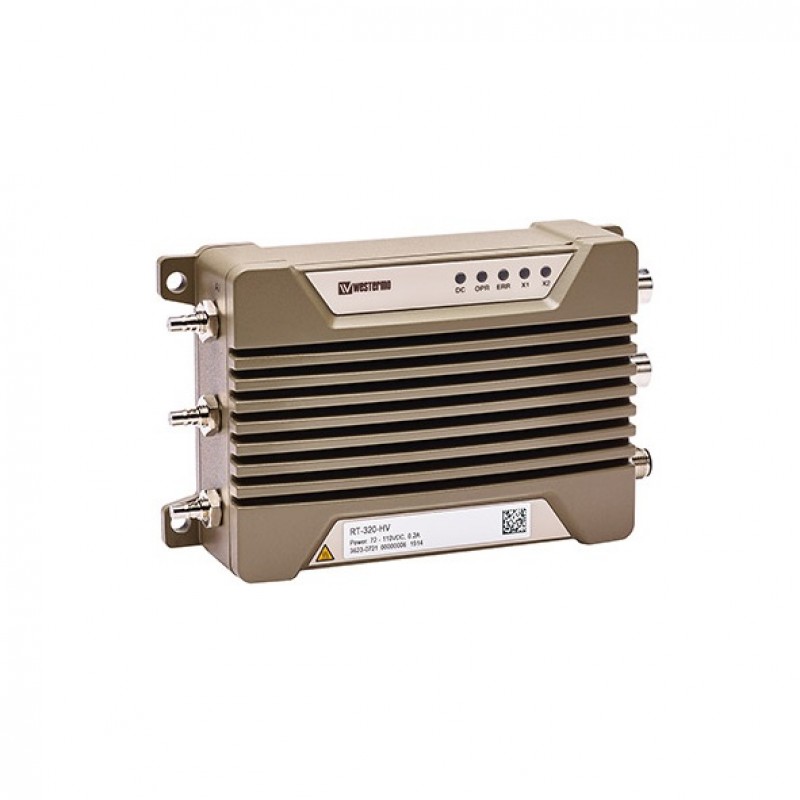
.png)
